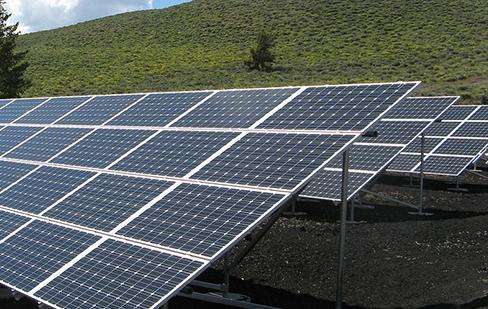1. Wind power generation will harm the local ecological environment, such as destroying vegetation, changing the topography, causing soil erosion and desertification.
2. The electromagnetic radiation produced by wind power generation affects human habitation. In wind power generation systems, generators, substations, transmission lines, etc. are the main causes of electromagnetic radiation. When the receiving device attached to the wind farm receives the signal, it will receive the electromagnetic wave signal reflected by the wind turbine blades.
The reflected signal is a lagging signal, which can have a greater impact on the AM radio system; at the same time, the rotation of the turbine blades will also produce a phase-shift signal, which can have an impact on the FM radio system. The material the blades are made of will also interfere with electromagnetic waves. If the blades are made of metal materials, it will cause serious electromagnetic interference.
In addition, an alternating electromagnetic radiation field will be formed around high-voltage transmission lines, causing electrostatic induction relative to the ground, causing interference to radio and affecting human health.
3. Wind power affects local climate. Wind power uses wind energy in the atmosphere. According to the law of conservation of energy, the consumption and production of one kind of energy must produce or consume another kind of energy. Therefore, wind turbines The power generation process must consume part of the wind energy in the atmosphere. As one of the important factors of climate change, wind energy changes will inevitably bring about climate changes.
When some offshore wind farms and inland ridge wind farms are operating, if the humidity is relatively high, a huge water vapor tail will condense behind the wind turbine, which may affect the local microclimate, such as humidity, sand and dust. Subsidence has an impact.
4. Damage to the wind turbine blades is prone to accidents. When the wind turbine blades are subjected to strong winds above 25m/s (cut out wind speed), although the wind turbine is in a shutdown state, However, due to the limited bending moment, torque, shear strength, and extrusion strength that the blade root can bear, in severe cases, the entire blade can fly out.
Causing casualties and building damage on the road (although wind turbines are mostly located in coastal areas with sparsely populated areas). In addition to extreme winds, blade surface corrosion, lightning strikes, ice coating, cracks, etc. can easily cause blades to break, causing accidents and affecting public safety.
5. The noise hazards of wind power generation. For such a large wind turbine, when the huge blades rotate (one blade requires a special bendable long truck to be transported), it Noise is inevitable.
The noise from wind blades can be roughly divided into three categories.
1. Thickness noise, which is produced by the squeezing of air and blades. In windy weather, when we close the doors and windows, do we often hear a sharp and harsh sound, which feels like a ghost crying or a wolf howling? , coupled with the gloomy sky outside, it is still a bit scary to think about it.
2. Load noise, as the name suggests, is caused by the blades bearing a large load.
3. Impulse noise is generated when the Mach number is close to 1. In this way, the impact of noise on the environment cannot be ignored..
Extended information
Hazard response measures:
1. Wind power generation construction requires preliminary planning. It should be far away from residential areas and avoid ecologically sensitive areas.
2. Improve the design level of wind power generation so that it can be well integrated into the environment.
3. When developing wind power generation, environmental, economic, and social effects need to be comprehensively considered, and one cannot ignore the other. The impact on the environment needs to be reasonably considered from both positive and negative aspects.
Baidu Encyclopedia-Wind Power














